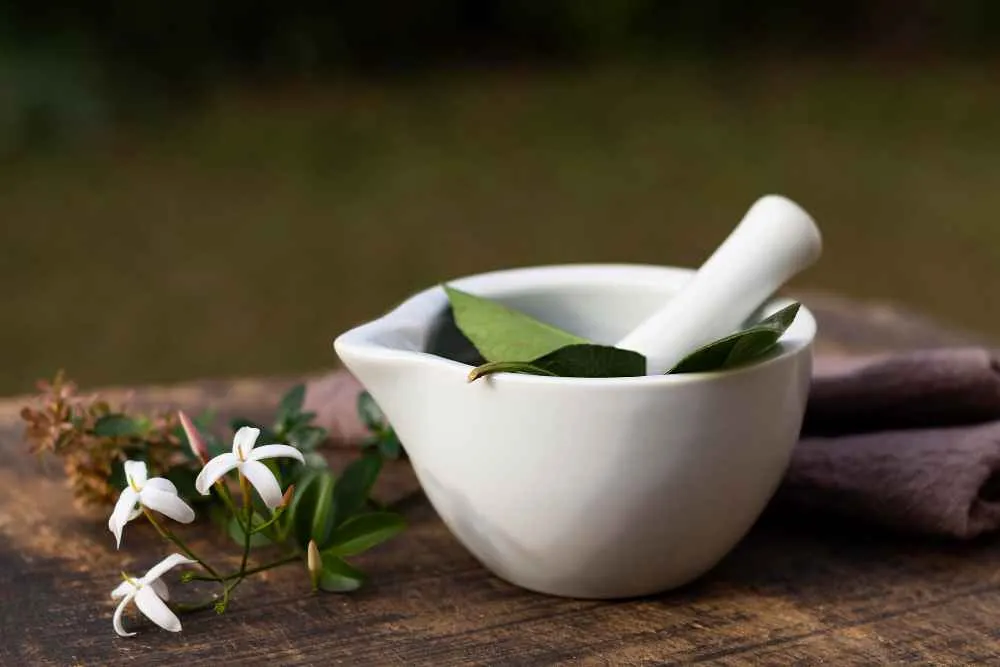If you are following the trends and news in the health and wellness industry, you have probably come across the resurrection of ayurvedic medicine. It's a medicinal practice that uses plants and herbs to improve the overall health of a person. It's based on the belief that the human body can heal itself if supported during the process. That's why it uses certain plants and herbs that are beneficial to the human body and promote its self-healing. One of the most used plants and herbs in Ayurveda is ashwagandha. This plant is known for the so-called ashwagandha wirkung (eng. "impact") which has been proven to help the body restore its balance and achieve optimal condition, a.k.a. Homeostasis. But, what is exactly ashwagandha? There are many questions you probably want to know, so let's have a look at several facts about this plant. 
Facts About Ashwagandha
Have a look at the common facts about the Ashwagandha plant:1. It's a Bush
Ashwagandha is an evergreen bush with red berries on it. These berries look like tomatillos or husk cherries because they belong to the same family of Solanaceae, better known as nightshades. So, if you are allergic to eggplants, tomatoes, or peppers, you might also be allergic to ashwagandha.2. It Originates from India
Ashwagandha originates from India. But it's also found in some countries in the Middle East, parts of Africa, and some Mediterranean countries. It's also known by the name of Indian ginseng or winter cherry.3. It's an Ancient Natural Remedy
Ashwagandha has been used in Ayurveda for more than 3000 years. That's a really long period of time, isn't it? According to claims, it was used to treat numerous health conditions and issues, including stress, insomnia, arthritis, snake bites, constipation and other gastrointestinal problems, fever, memory loss, and infertility. It's known as a diuretic, aphrodisiac, and Rasayana - a remedy that increases vitality and health. It's still used as a remedy in India, Sri Lanka, and Pakistan to reduce stress. Read also: Ashwagandha Benefits And Its Side Effects4. The "Ashwagandha" Meaning
When you first see the name "ashwagandha" you probably wonder about how to pronounce it. But, it's not that difficult as you might think it is. Although it sounds weird, it has its meaning. In Sanskrit, it means "odor of the horse". This is because the roots of ashwagandha have a weird, unpleasant smell that resembles the smell of a horse. Moreover, this plant is associated with a horse because it's known for providing people with energy and strength like those of a horse.
Copyright: Unsplash / author: meguminachev / I License: CC0 Public Domain
5. The Parts of Ashwagandha that Are Used to Prepare Remedies
Although the plant, as a whole, is known to serve for medicinal purposes, its roots, fruits, leaves, and seeds are used to prepare a remedy. Which part of the plant is used depends on the remedy that needs to be prepared. For instance, in order to make ashwagandha tea, you need to use only the root (grated, in the form of powder).6. It Contains Withanolides
Many people are interested in why ashwagandha is so beneficial and why does it help. It's because its root contains several bioactive compounds, including withaferins, withanolide glycosides, saponins, alkaloids, and acylsteril glycosides. The withanolides are the best-known active component of ashwagandha. They help normalize numerous biochemical processes in the body. In that way, they improve the energy, reduce stress, boost the immune system, and help with other health conditions and issues.7. It's an Adaptogen
Ashwagandha is an adaptogen which means that it adapts the body to any health condition aiming to achieve a balance of several systems. Namely, it reduces the body's reaction to stressful situations, supports the nervous system, endocrine system and cardiovascular system. Moreover, it supports and improves the immune system and its function by increasing the number and activity of the t-cells which fight infections.8. Ashwagandha Is Safe If Used Short-Term Only
Having in mind that it's a plant, it is believed to be safe to use. However, when it comes to using it as a supplement, not the plant in its natural form, then you should be careful. It's because there are many companies selling ashwagandha supplements, but not all of them are equal. Therefore, in order to choose a product that is safe to use, you should buy one that is manufactured by a well-known brand, is third-party tested, and has a Certificate of Analysis included. Moreover, you need to know if and how it interferes with other drugs and supplements. That's why you need to consult with your doctor who will also suggest the right dosage. Also, Read about: Acne and The Healing Power of Black Seed Oil According to what is known, ashwagandha is safe to use if taken in smaller dosages and short-term. If taken in larger dosage and for a longer period of time, it can cause nausea, upset stomach, abdominal pain, and possibly dermatitis. But, you should keep in mind that it shouldn't be used during pregnancy while breastfeeding, and in children although in India it is used to improve their health and support healthy development.
Reviewed by







